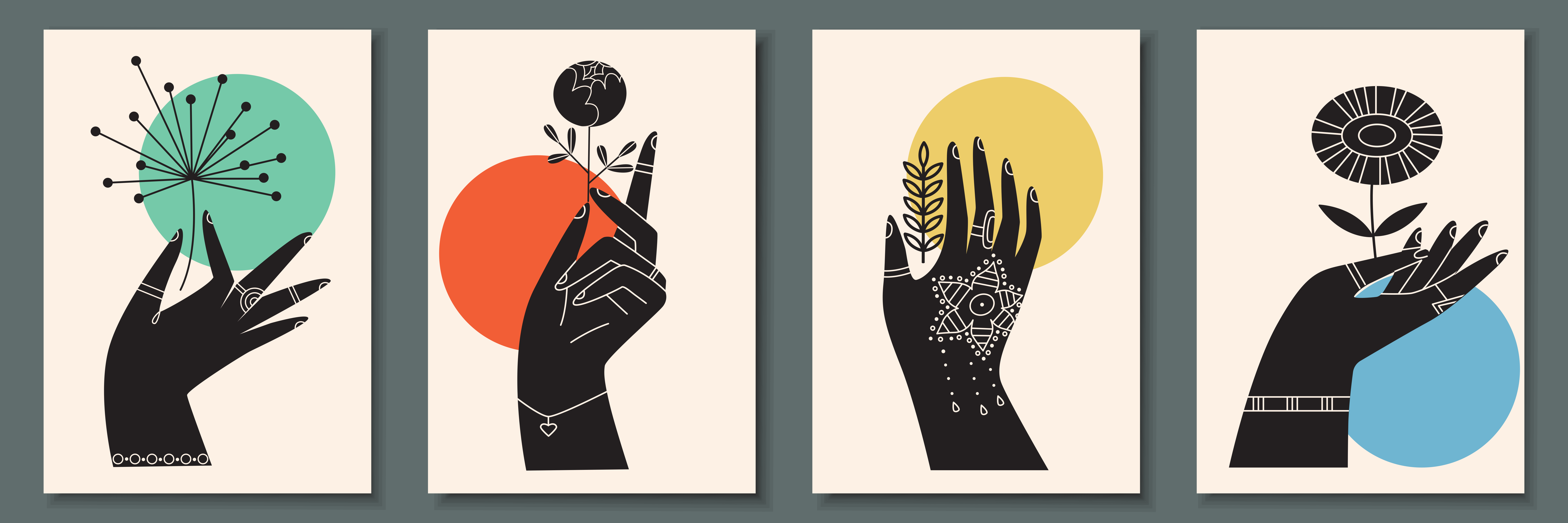I’d been questioning the deep Southern African-American Christianity I’d been raised in for some time when I hit my first conundrum. How could we say we worshiped one God, but gave space for the Holy Trinity? I toiled with this query and similar questions like a child playing with their food.
How could God detest LGBTQ+ identities and yet create every person in his “perfect” image? Why did men have to be the heads of households, wasn’t that misogynistic? How could we preach messages of limitless love for thy neighbor while secretly judging them for their difference in religion? Questions led to conundrums, conundrums led to doubt, and doubt ultimately led to disbelief.
If I’m being honest, I don’t think I ever wanted to leave my birth religion. In truth, I would have loved to have stayed with what was familiar, but familiarity doesn’t equal contentment. Christianity didn’t fill me with a deeper knowledge of self, nor any special feeling of being connected with something greater. In truth, it often left me feeling barred and less connected with the world, my community, and myself. I searched for something more.
Utilizing all the skills and know-how I had gained as a child who learned about most of the world through books and the Internet I began researching religions.
The more I looked into structured and institutionalized religion the more I realized my desire for freedom couldn’t be quelled with another set of rules or assemblage of regulations.
I thought about returning to traditional African spiritualities, honoring my ancestors and the orishas that guided them through the middle passage like Yemọja, Ṣàngó, and Ọlọrun. I contemplated adopting religions like Islam or Judaism, bound together under Abrahamic ideology. I even almost settled on Buddhism, following in the footsteps of transgender actress and mogul Angelica Ross, who found space for her Black, trans, and human identity through its spiritual teachings.
But the more I looked into structured and institutionalized religion, the more I realized my desire for freedom couldn’t be quelled with another set of rules or assemblage of regulations. The freedom and space I needed could only come from something looser, something unbound, something like spirituality.
Where religion often emphasizes how and who a person serves, spirituality places emphasis on the practice serving the individual. Spirituality created room for my transness and made LGBTQ+ identities not something to detest, but rather a unique display of someone’s humanity—a piece of a being that added to them, not take away. It also created space for history to celebrate Indigenous beliefs, rather than demonize them.
Maybe we are all looking at the same thing, but through different social, cultural, and geographical lenses.
For the longest, organized religion felt like competition amongst systems of beliefs – who was right and who was wrong. But spirituality allowed me to be comfortable with the unknown. No belief could be right nor wrong, because they were mine. They weren’t up for debate or criticism. They were there to simply exist and add to not what I thought was truth, but to what I felt was true for me.
It provided me with reminders that I felt it was just as spiritual to read in the morning and connect with myself as much as it was to go out, drink, and enjoy the wildness of youth. It encouraged me to look deeper at how I could not only show up in love and compassion for myself, but also for others. It reminded me that I could pull practices that felt right for me from any religion or spiritual practice, as long as I felt affirmed in doing so.
Faith for the longest time meant a belief in a Christian God and the devoted importance of keeping his teachings, regardless of how they made you feel or treat another person. But now, faith feels like a much simpler notion.
It means a simple truth in a belief that there is something greater than myself out there and a belief that my life holds a purpose, to be loved just as much as I give it. Instead of judging one person’s belief over another, true faith is expanding the notion of a higher power and understanding that maybe we are all looking at the same thing, but through different social, cultural, and geographical lenses.
The rebirth of my faith did more than define my spiritual beliefs, but rather did the deeper work of informing my humanity. This is what all of our practices should do.
They should expound on notions of kind living to ourselves and our communities. They should provoke deep thought that is not only empowering but also intersectional, meeting the needs of our various identities. And most importantly, they should be unique to ourselves, not a one size fits all, but a practice that affirms, nurtures, and provides space to exist and grow.♦
Don't forget to share:
Help make sure LGBTQ+ stories are being told...
We can't rely on mainstream media to tell our stories. That's why we don't lock our articles behind a paywall. Will you support our mission with a contribution today?
Cancel anytime · Proudly LGBTQ+ owned and operated
Read More in Culture
The Latest on INTO
Subscribe to get a twice-weekly dose of queer news, updates, and insights from the INTO team.
in Your Inbox













